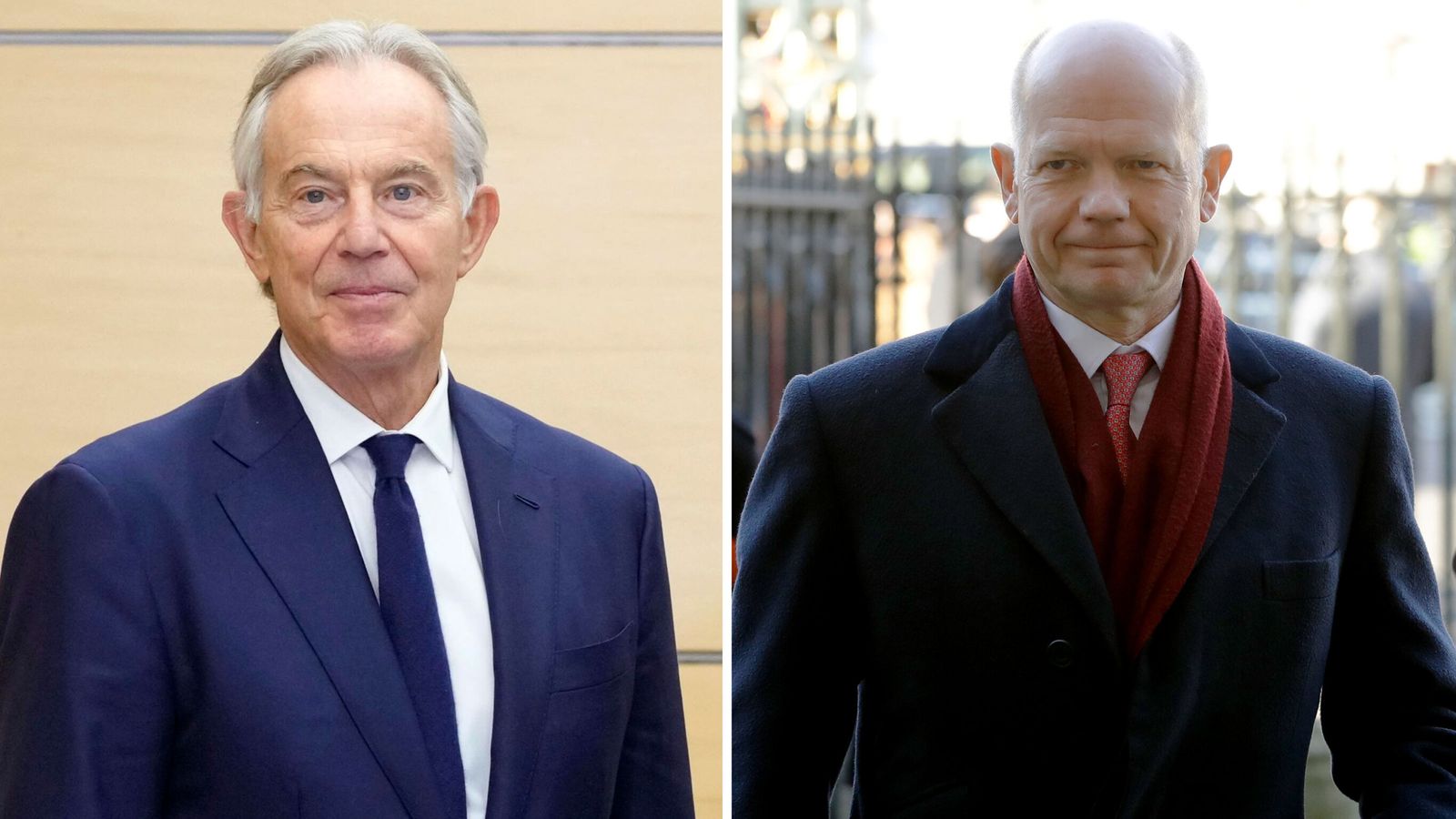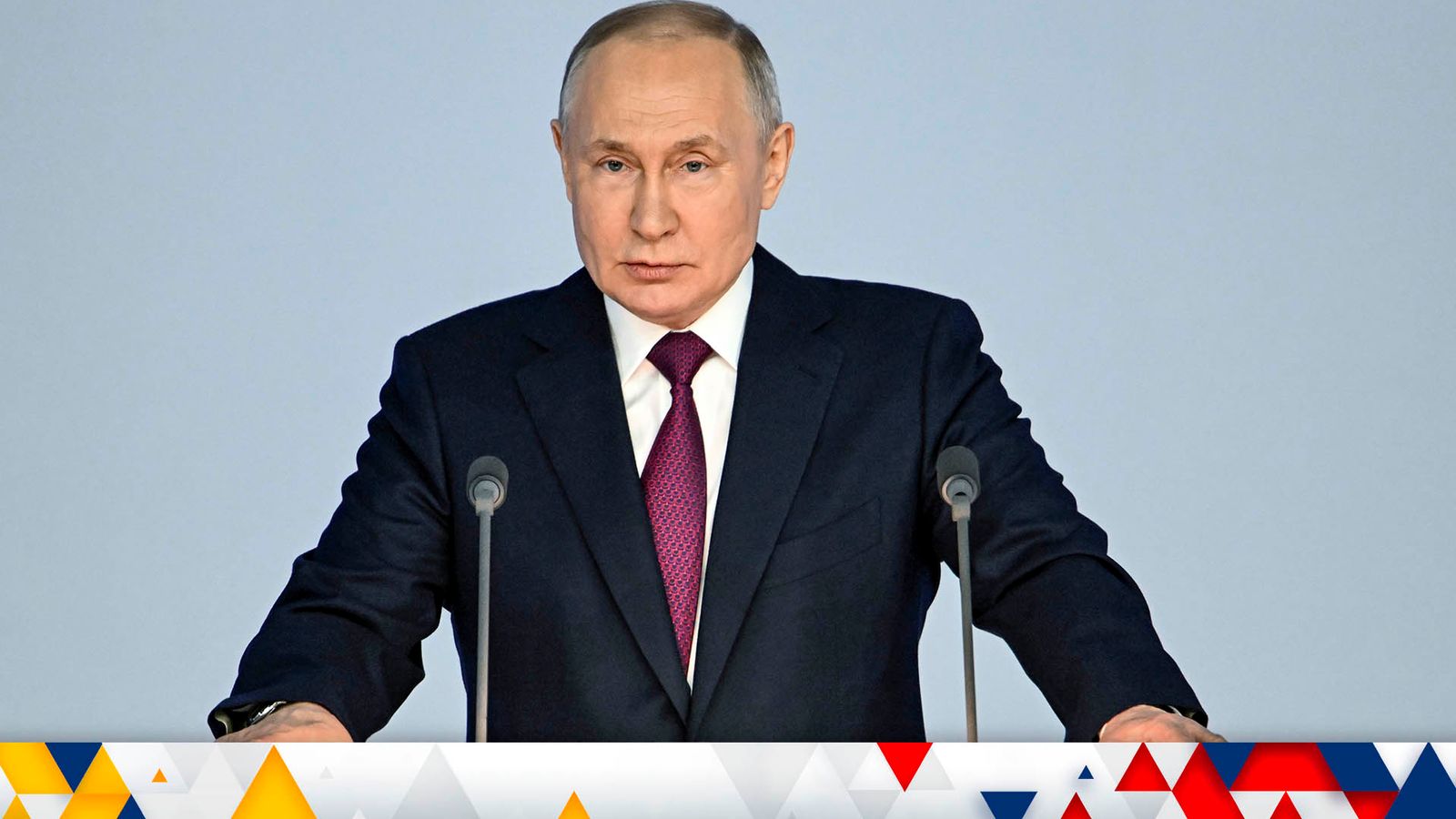Sir Tony Blair and Lord Hague have joined forces to urge the government to roll out “digital ID” as part of a “fundamental reshaping of the state around technology”.
Their plan would involve a new ID incorporating details such as a passport, driving licence, tax records, qualifications and right-to-work status which could be stored on a mobile phone.
The former political rivals said the challenge of adapting to the new technological revolution meant putting party differences to one side.
Sir Tony was the Labour prime minister when Lord Hague led the Conservative party as the Opposition and the pair had many clashes at the despatch box.
Politics live: Intensive talks’ between health sec and nursing union
“We both believe the challenge is so urgent, the danger of falling behind so great and the opportunities so exciting that a new sense of national purpose across political dividing lines is needed,” the pair said in a joint article for The Times.
They warned that politicians were in danger of conducting a “20th-century fight at the margins of tax and spending policy” rather than grappling with the fundamental shifts required in the new era.
Devolution paved the way for Nicola Sturgeon to thrive – but she brought Scottish independence no closer to reality | Adam Boulton
Tony Blair wanted Vladimir Putin at ‘top table’ while he was PM despite officials’ fears
How long will Boris Johnson last? Conservative confidence votes in numbers
“We are living through a 21st-century technology revolution as huge in its implications as the 19th-century Industrial Revolution,” they said.
The pair suggested a shake-up of Whitehall “including digital ID for every citizen, a national health infrastructure that uses data to improve care and keep costs down, and sovereign AI systems backed by supercomputing capabilities”.
The Times reported that the pair’s plan, published in a report with more than 40 recommendations, included:
On BBC Radio 4’s Today programme, Sir Tony – who pushed to introduce ID cards as prime minister – said technology would overcome many people’s concerns about online dangers.
“If you look at the biometric technology that allows you to do digital ID today, it can overcome many of these problems,” he said.
“The world is moving in that direction, countries as small as Estonia and as large as India are moving in that direction or have moved in that direction.”
Read More:
MPs vote for controversial legislation to introduce voter ID
Nothern Ireland Brexit deal ‘not close’, says senior Tory MP
He added: “Here’s our problem: We’re spending a lot, we’re heavily taxed, and the outcomes are poor.
“So the question is what changes that situation? So if you take, for example, the ambition we have on climate, there is no way we can meet that ambition without changing planning. There’s literally no way we can do it.
“And a lot of these things, they’re not airy-fairy, they’re actually about people’s lives. People already live their lives digitally. The question is whether government and politics can catch up with that reality.”










